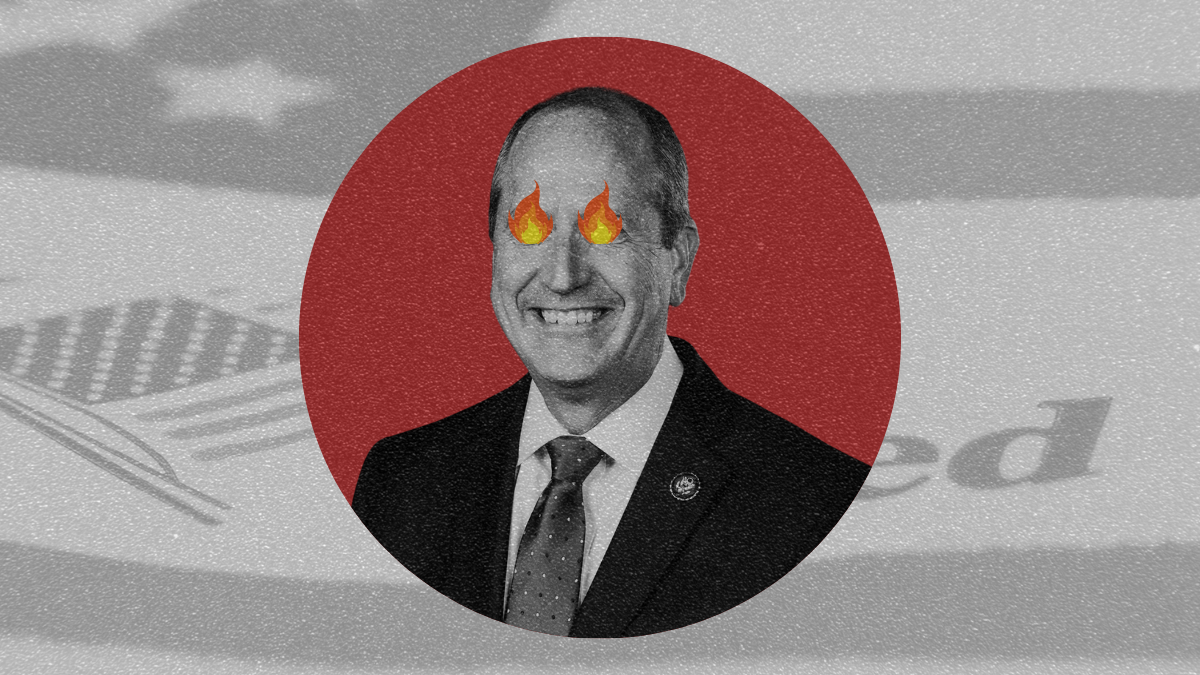Source: NC Newsline
North Carolina U.S. Rep. Dan Bishop, an election-denying, anti-LGBTQ+, anti-reproductive rights, pro-insurrection right-wing Republican is the NCGOP’s nominee to be North Carolina’s next attorney general, and a win would likely result in new, more serious attacks on our voting rights.
Bishop will never be confused with a protector of voting rights. After all, he tried to stop the certification of the 2020 election and is an election denier who thinks Donald Trump won. He voted against impeaching or convicting Trump for inciting an insurrection, which he called “the worst example of an insurrection in the history of mankind” during a House floor speech against creating a Jan. 6 commission.
Bishop also falsely accused election workers of misconduct, saying there were “indications of grossly improper conduct from election officials right here in my district.” PolitiFact rated Bishop’s statement as “False.”
Shortly after the 2020 election, Bishop loudly supported the lie that Democrats had rigged the election for Joe Biden and announced that he would contest Electoral College votes in four states that were key to Joe Biden’s victory.
“The Democrats’ objectives were to weaken ballot security, undermine positive identification of voters, and provide opportunities for post-election ballot-box stuffing,” Bishop said at the time. “This has been a national, partisan attack on the Constitutional delegation of authority to regulate elections specifically to state legislatures.”
If Bishop wins in November, a man who claims to be concerned about the integrity of elections – yet tried overturning a free and fair election – and still believes in a disproven lie four years later, will have significant control over North Carolinians’ voting rights and “election integrity.”
“There will be continuing efforts to challenge the right of people to vote, the requirement that they use voter ID, the counting and security of the ballots when cast, and how that is to be handled at the state level,” Irving Joyner, a law professor at North Carolina Central University’s School of Law, told NC Newsline. “Who is elected as the attorney general in 2024 will determine what positions the Attorney General’s Office and the state of North Carolina will take with respect to those challenges, and how those challenges will be handled in court.”
It’s a bit hard to fathom that someone like Bishop would be able to effectively and fairly run an office that was originally intended to expand voting access for North Carolinians.
“We’re in a little bit of uncharted water here,” said Christopher Cooper, a professor of political science at Western Carolina University. “We’re talking about electing somebody to an office that would enforce voting rights laws, who doesn’t believe that the election was free and fair when it clearly was.”
Cooper told NC Newsline that Bishop and his opponent, current Democratic U.S. Rep. Jeff Jackson, couldn’t be any more different from each other, including when it comes to election administration.
Bishop is more concerned with so-called security measures, like voter ID and cracking down on voter fraud, Cooper said. As for Jackson, he is focused on expanding ballot access through measures like extending early voting and making it easier to vote absentee.
“If you think of the conversation about elections as being this tension between security and access, you can imagine it being all the way towards the security side with Bishop and, of course, Jackson much more to the access side,” said Cooper.
For years, Jackson has fought to bring more fairness to the political process in North Carolina. Before being elected to Congress, he served in the General Assembly where the first bill he filed would have ended gerrymandering in North Carolina by setting up an independent redistricting commission. The bill did not pass.
Bishop would likely be more than happy to go along with his Republican friends in the legislature when they attempt their next attack on voting rights in North Carolina.
“I cannot imagine Dan Bishop trying to defend the length of early voting or trying to stop the legislature’s authority in any way,” Cooper said.





